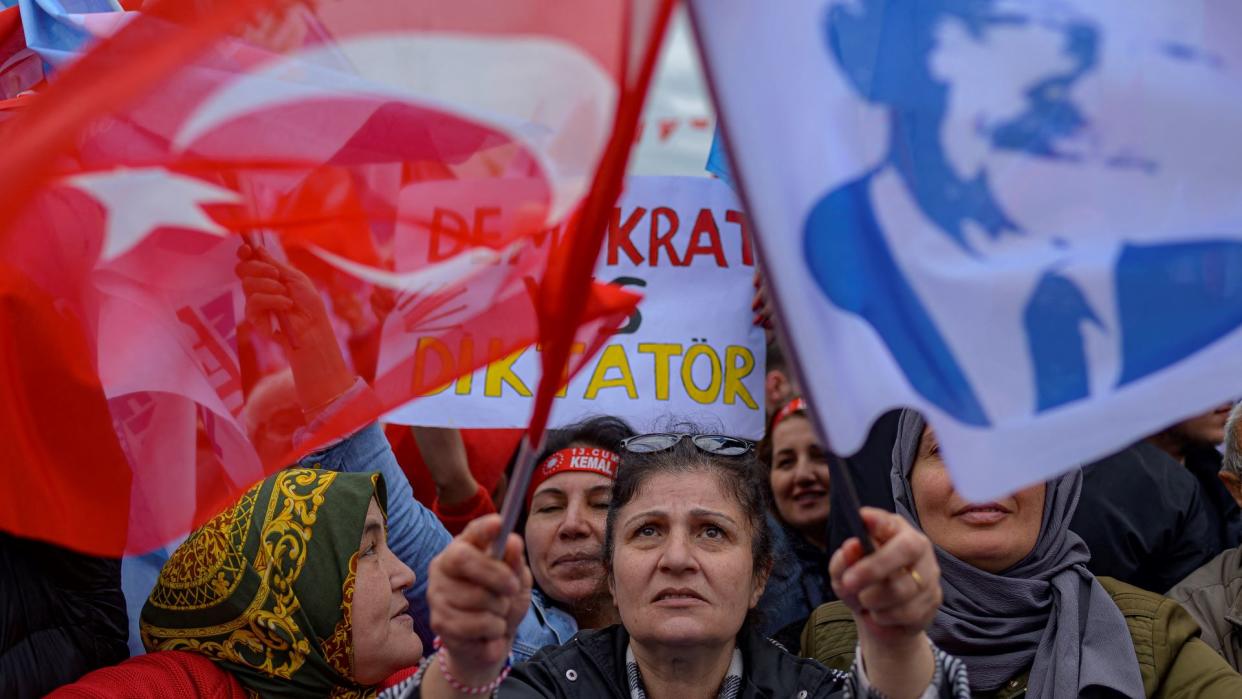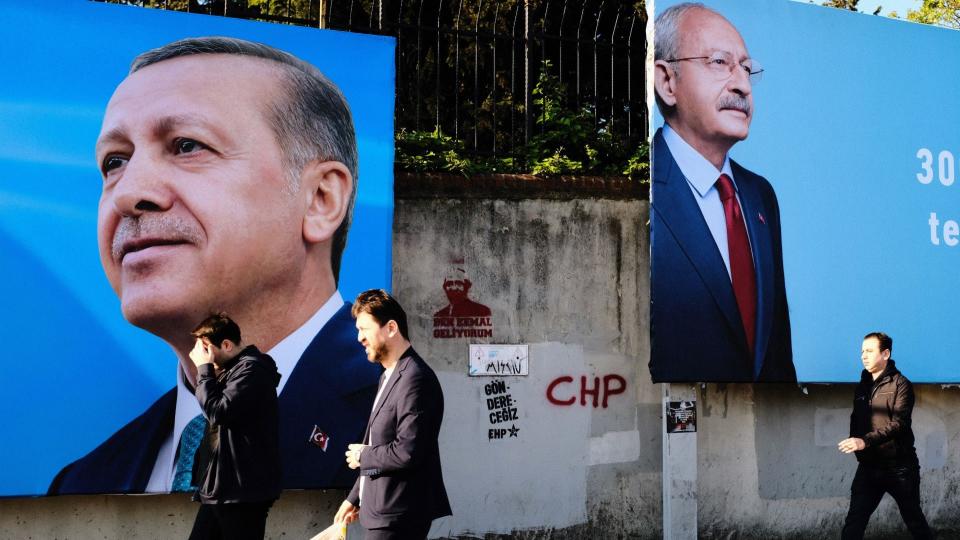Turkey elections: will the internet withstand the final round?

- Oops!Something went wrong.Please try again later.
As the final battle for the Turkish presidency is getting closer, experts say Turks are on high alert for potential censorship and internet shutdowns.
Popular VPN service Proton VPN first registered a spike in sign-ups ahead of the first round of elections. The provider told TechRadar that the daily usage of its Turkey VPN has continued to soar.
This climate certainly doesn't come as a surprise considering that current President Erdoğan is infamous for its strict grip on the internet, especially during times of political crisis. Here's what's at stake for people in Turkey in the next few days.
Hoping for the best, but expecting the worst
"Turkey’s history of internet shutdowns, coupled with the recent restrictions on social media, highlights the concerning trend of suppressing information during political unrest. This raises alarm over the possibility of further internet restrictions as the upcoming elections draw near," Surfshark spokeswoman Gabriele Racaityte-Krasauske told TechRadar.
Turkey is the fourth-worst country in Asia by internet restrictions and first in Western Asia, Surfshark reports. The country counts, in fact, about 20 nation-scale mass-censorship incidents since 2016, according to data collected by UK-based internet watchdog NetBlocks.
The Turkish social media website Eksi Sozluk was restricted on the eve of the first round of elections. Some accounts and content was also taken down across online platforms like Twitter and Facebook recently. DDoS attacks on independent media sites during the election night and on the opposition's electoral result monitoring platform after the vote counting have also bolstered concerns.
Despite these being relatively isolated incidents so far, Director of Research at Netblocks Isik Mater, who's currently in Istanbul monitoring the elections, told TechRadar: "Turkish people are hoping for the best but expecting the worst therefore preparing for possible disruptions by seeking alternative communication channels and ensuring they have access to reliable news sources."

The stakes are even higher this time, since whoever wins the polls on May 28 will govern the country for the next five years.
President Erdoğan, who's been ruling the country for 20 years, can count on a solid alliance boosted by the recent endorsement of the third-place candidate. In the opposition there's Kemal Kilicdaroglu backed by six allied parties. After the first round on May 14, the candidates received 49.5% and 44.9% respectively.
"The current climate across the country is quite grim. Regardless of who wins the election, they will inherit numerous challenges including economic struggles, humanitarian crisis across earthquake affected areas, and the refugee crisis," explains Mater.
"People are anxiously awaiting the election results as they believe it will determine the fate of the country and access to information is a key part of that."
A spike in Turkey VPN usage
Short for virtual private network, a VPN is security software able to spoof users' IP address location so that they appear to be browsing the web from a completely different country within seconds. VPN services also encrypt all the data leaving a device for helping users enjoy better privacy when online.
No wonder there was a huge increase in VPN downloads during the election days. However, this time, the trend seems to have been a bit different than usual.
"Normally we see spikes in sign ups in the hours following government censorship of social media, news sites and other similar online resources. The Turkish elections were unusual in that we saw a significant increase in sign ups (44,000 daily sign ups at peak) ahead of the first round of elections," a Proton VPN spokesperson told TechRadar.
"This would imply that people in Turkey were preparing themselves in case the government began a program of censorship. This also resulted in a spike in use, despite no increase in censorship that we are aware of, and today we still see daily use higher than pre-spike levels."
As we have seen, Turks are increasingly turning to circumvention tools to be ready in case Turkish authorities decide to throttle social media access and internet connection during the crucial hours leading to Sunday evening.
Experts encourage people to download different services so that users can hop among them in case of blocks. We also suggest checking our guide on the best free VPNs to ensure you're using a safe, high-quality product. On the other hand, Surfshark and some other providers are committed to supporting journalists, NGOs and activists in Turkey and elsewhere internet freedom is at risk, urging whoever is in need to reach out.
Racaityte from Surfshark said: "A potential internet restriction during the election could hinder the spread of crucial information that could shape the outcome of the election, undermining the very essence of democratic elections."


